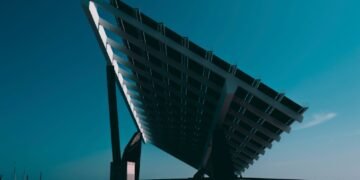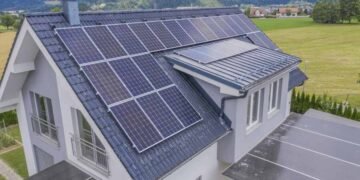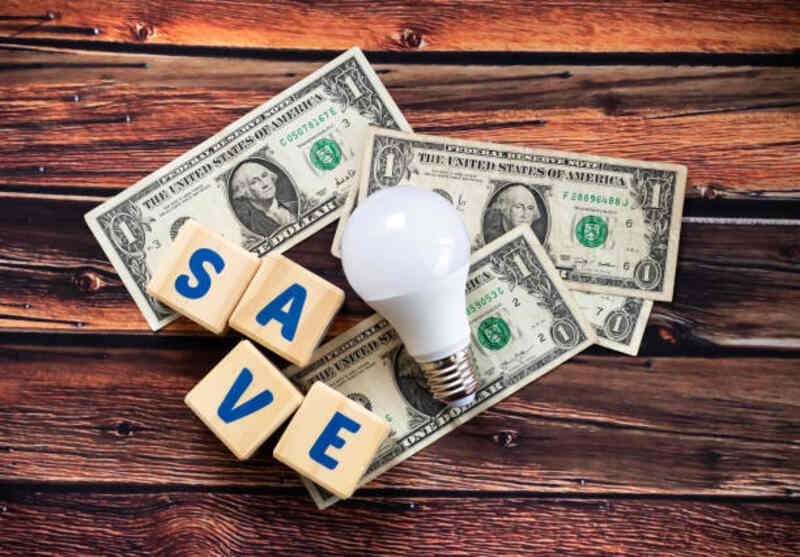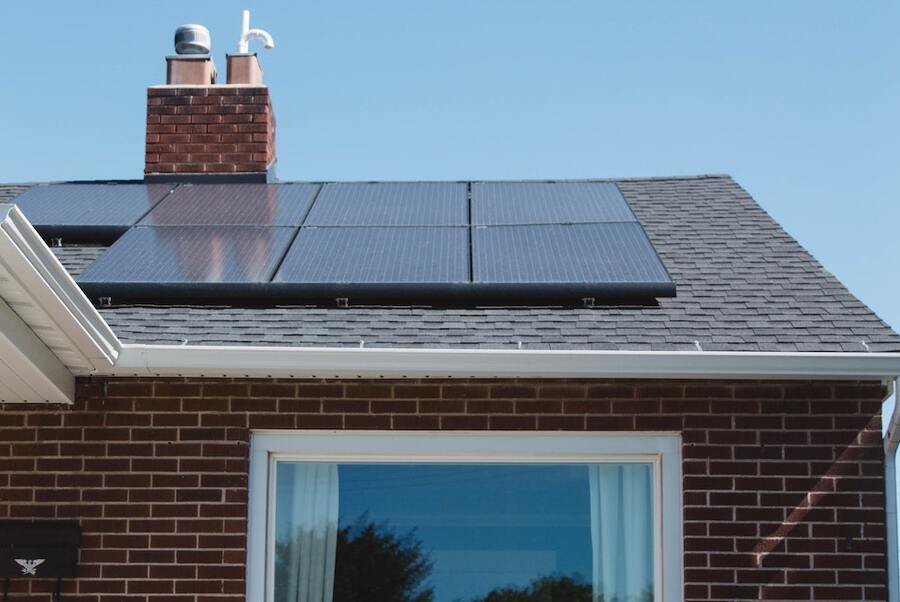What are the benefits and drawbacks of solar power at home?
This might be a situation that a lot of people find themselves in. It is because more and more people are installing solar panels for home use.
Solar panels fitting is becoming popular as electric bills keep on going up. People are now looking for renewable energy to solve their electric needs.
As you might be contemplating solar energy, you must know upfront that it is worth it. In this article, We have discussed the benefits and drawbacks of solar energy to resolve your doubts.
Renewable Energy
Putting solar panels on a home can be an excellent way to use green energy in many ways. Solar electricity is clean, always available, and easy to get.
So, using it as the primary energy source in a home will help people use less standard power and save a lot of money on their monthly energy bills. Also, unlike other types of energy production, solar energy doesn’t pollute the air or water.
But putting in and taking care of solar panels can be expensive and hard to change if a family moves to a place that needs more sun. Also, these methods are only sometimes reliable when the weather could be better.
Still, solar panels can be a reliable, cheap, and friendly energy source if they are set up and cared for.
Cost Savings
Installing solar panels in the home can bring actual cost savings for a household. As electricity costs usually increase over time, solar panels help even out electric bills by using the sun’s energy to power your home.
With solar, you can generate electricity and reduce grid electricity costs. You can also sell excess energy from the panels to your electricity connect with a solar provider, providing more cost savings.
Also, with current state and federal incentives, installing solar panels at home can be a more affordable option. This clean and renewable energy source allows households to use cost savings for years.
Financial Incentives
Governments and utilities provide financial incentives for those who install solar panels in many parts of the world. These can include tax credits or cash payments for a part of the cost, making solar energy inexpensive.
Yet, these incentives are subject to change and are only sometimes consistent. They may grant some cash incentives as a one-time payment or as part of a rebate program.
Investigating the available incentives before investing in a solar system is essential. Other financial incentives, such as shop credits, are offered with some solar systems that can help lower costs.
By taking advantage of these financial incentives, a homeowner can enjoy considerable savings on installing and maintaining a solar panel system.
Increased Property Value
Solar panels can add a lot to the value of a home when it comes time to sell it. Possible sellers may be interested in saving more money on energy and the fact that solar can make a house look better from the outside.
Solar panels show potential sellers that the house has been well taken care of and has energy-saving features that may help them save money on their energy bills in the future. Like many other ways to invest in a home, this one has pros and cons.
Solar panel installation can raise the value of a home. Still, it’s important to remember that the return on investment may take time, making it a longer-term investment. Before investing, look at the pros and cons of solar panels and decide which ones are more important to you.
Energy Independence
Putting solar panels on your home gives you more control over energy use. You can make your electricity, so you won’t have to rely on a steady supply from a utility company.
Installing solar panels to get free energy is an excellent way for people to take charge of how much energy they use. Solar panels are a way to save money, with the cost of energy from traditional sources rising.
Installing solar panels is a good idea because it’s possible to use the energy from the sun to power a home. This lets people stop using traditional energy sources. Another pro is the point made by the sun that you could use to lower the cost of electricity, making solar panels more cost-effective.
Since most of your power bill is made up of fees from utility companies, you can cut it by as much as 50%. But buying solar panels and putting them in place first can be expensive.
Also, the money you can save depends on where you live, your setup, and other things. So, putting solar panels on your home is a cheap and energy-efficient way to get your power.
Environmental Benefits
Installing solar panels at home is one of the best investments a person can make to help the Earth. Solar energy is a source of energy that can be used. It doesn’t add to global warming or cause pollution.
Since the sun’s energy is used to power solar panels, they don’t make any noise, smell bad, or release gases that are bad for the environment. This makes the world much cleaner than when electricity comes from other sources.
By using less electricity from big power plants that run on fossil fuels, solar technology reduces the amount of greenhouse gases like carbon dioxide released into the air. Solar energy also needs much less upkeep than old ways of getting power. It can last up to 30 years with very little care.
This reduces the need for new resources and lowers environmental problems like air and water pollution. So, solar panels are a great way to reduce your carbon footprint and lessen the damage that making energy does to the Earth.
High Initial Cost
Installing solar panels on a home can be expensive, so many people need help. The process can be costly, with significant upfront costs and complicated rules and systems.
Solar companies often offer help with money through loans and tax breaks. Still, some people may need help saving the required amount before those benefits kick in. Also, the costs can vary a lot based on the size and scope of the system and the homeowner’s situation, which can shock some.
Installing a solar system is an excellent long-term choice to save you money. Still, some people might need help to afford the service cost.
Solar technology is becoming useful by states, private companies, and other groups. They are giving more options, like zero-down financing and tax credits, to help homes that wouldn’t have been able to buy and install the technology otherwise.
Weather Dependency
The weather dependency of installing solar panels for home use can significantly affect users. Different types of climates and geographical locations can affect how effective the solar panels are at any given time.
Clouds, dust, rain, and snow can reduce the working efficiency of the panels. In extreme conditions, such as heavy rainfall, the panels may not be able to generate sufficient electricity.
Furthermore, too much sunlight can damage the panels, reducing revenues and performance. So the weather conditions in a particular area must be considered to install an efficient and valuable solar system.
Homeowners should also consider the area’s geography and seasonal changes to ensure the best performance of the panels. Weather dependency on solar panel installation must be considered before purchasing.
Space Requirements
There are many factors to consider when considering space requirements for solar panels. Size and weight are essential, as well as the type of roofing material used, height and angle relative to the sun, and wind load.
Generally, most solar panels require mounting space of approximately 4 to 8 square meters per kilowatt of power generated. This space requirement can be modified using higher-efficiency panels and tracking systems, which typically require more space.
Additionally, solar panels may require more space for maintenance and safety purposes. This means space requirements might be higher for conferences in urban locations than for discussions on rural property.
Solar installation is bound to different regulations and local requirements, so always consult an expert to ensure all space requirements are addressed.
Maintenance and Repairs
Regarding maintenance and repairs, installing solar panels for home use offers advantages and disadvantages. On the one hand, solar panels are very reliable and require little maintenance during their lifetimes.
In the long run, this can save you time and money as you won’t have to check or repair them constantly. The Solar Panel System is not affected by power outages, so it’s dependable.
If repairs are needed, they could be pricey since the technology is still developing and only a few specialized technicians are qualified to perform them. It is essential to schedule periodic inspections and routine maintenance for solar panels to ensure their continued performance.
Cleaning solar panels regularly with water or a mild detergent is one way to help maintain efficiency. It is also essential to check and tighten the mounting connections and wiring to ensure no loose connections.
Any debris accumulating on the solar arrays should also be removed to maintain optimal energy output. Another essential step for maintenance and repair includes keeping the batteries in good condition and checking the inverters for any signs of damage or wear.
Only qualified technicians should be used for any repair or maintenance work on the system. Homeowners can ensure their solar system works efficiently by following a regular maintenance and repair schedule.
Aesthetics
Having solar panels is more than just a way to make your home greener. It makes home attractive too. Solar panels can be made of different materials and be small, hidden, significant, and showy.
The main benefit of solar panels on homes is that they look nice. A working solar panel system gives you a sense of freedom because you are self-sufficient and know you make a real difference in reducing greenhouse gas emissions worldwide.
How something looks can be a con if it needs to be clarified or fit in with the rest of the home. When putting solar panels on houses, the pros far outweigh the cons.
With a solar panel, your home will look like a modern. Also, some types of solar panels are made especially for flat roofs, which adds to their aesthetic appeal.
This is especially true for people who want their home to look its best since the solar panel can be set to match the scenery around it.
Relocation Challenges
Cons of this installation include the upfront cost of buying and setting up the system, the time it takes to work, and the need to pay for extra energy support from the utility company when the system’s output isn’t enough. Solar panels are extensive and must be installed by a professional, so it might be hard for a homeowner to move them.
Moving can be expensive because you may have to find a new service provider and a new solar panel installation if the old one can’t help you in your new location.
Also, it might be necessary to do a new study of the area to determine how moving will affect how well solar energy is made. There is a chance that the people who put money into the project initially may need help moving their money to the new site because they are unable to or have legal obligations to do so.
Conclusion: Start Investing in Solar Panels for Home
Installing solar panels for home is a great way to reduce energy consumption, maximize efficiency, and help the environment. While solar panels’ long-term and financial benefits are far-reaching, some cons exist, such as the high initial cost and impracticality in certain climates.
Whatever your decision, research the best vendor and product options to obtain the most long-term benefit. Consider exploring your options and getting quotes from reliable companies to see if solar panel installation fits your lifestyle.
Recommended Posts:














